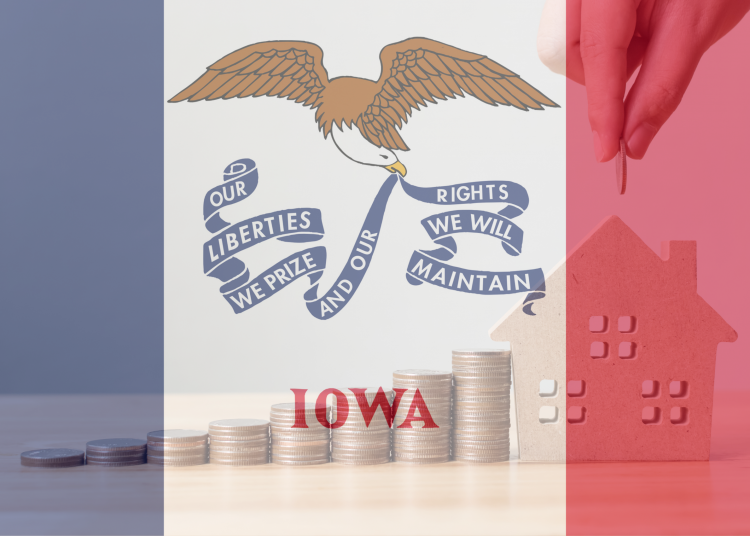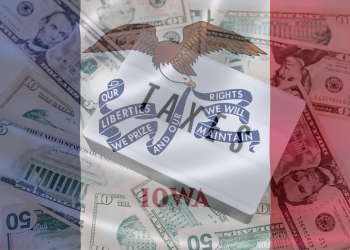Did you know that in 1934, Iowa implemented the first sales and income taxes to lower property taxes? It is never a good policy to create new taxes or raise existing taxes to reduce another tax and today, Iowans suffer from high property taxes and sales and income taxes.
Property taxes in Iowa primarily are the major sources of funding for local governments, with school districts tending to be the leading driver of property tax bills. Iowans are demanding property tax relief. However, their cries for relief are ignored by local governments who would rather blame the County Assessor or shift blame to another taxing authority.
Thankfully, stonewalling and the blame game can be stopped by taxpayers with a strong Truth-in-Taxation law that will help “ratchet down” property taxes and finally provide relief to taxpayers.
Truth-in-Taxation refers to strict transparency and accountability requirements that local governments must follow to raise property taxes. Truth-in-Taxation provides “sunlight” to the local government budgeting process. It forces local governments to be more accountable to taxpayers, closes the “honesty gap” created by increased assessments.
Too often, local governments claim a windfall from increased assessments, and the taxpayer is left wondering why their tax bill is higher. When questioned, local government officials argue that they are not to blame because they have not increased property tax rates. If assessments increase by 10 percent, it does not mean that a taxpayer has 10 percent more in their bank account. Truth-in-Taxation forces local governments to be honest.
Utah serves as the best example for a Truth-in-Taxation law, and it is considered the gold standard. In 1985 Utah’s legislature passed Truth-in-Taxation to address their high property taxes. Before Truth-in-Taxation, Utah’s property taxes were growing faster than the rate of population and inflation. Now, their property tax rates have grown at a similar rate as inflation and population growth.
The Tax Foundation ranks Utah with the seventh-lowest property tax burden. Iowa has the 10th highest property tax burden. Something needs to change. Other states are following Utah’s property tax solution. This year the Kansas legislature passed a Utah-style Truth-in-Taxation law. Currently, over 200 local governments in Kansas have decided to either hold property taxes flat or reduce rates because of Truth-in-Taxation.
A fundamental aspect of Truth-in-Taxation is direct notification. Under both the Utah and Kansas laws, local governments must send notices to taxpayers, providing information on the proposed tax increase and how it will impact their tax bill. It includes the date, time, location of the Truth-in-Taxation budget hearing. This extensive public notification and hearing process has been successful. It also forces local governments to take a recorded vote after the Truth-in-Taxation hearing, making politicians think twice before raising taxes to justify increasing spending.
Although direct notification is an essential aspect of Truth-in-Taxation, perhaps, more importantly, the law is revenue-driven rather than rate-driven. The benefit of a revenue-driven system is that it creates an “automatic reduction in property tax rates.”
Truth-in-Taxation helps to “ratchet down” property tax rates. As assessments or valuations increase, tax rates are automatically decreased to provide local governments the same amount of property tax dollars they received the previous year. If local governments want to increase spending by increasing property taxes, it then triggers a Truth-in-Taxation hearing.
One significant difference between Kansas and Utah is that while Utah allows new growth, Kansas does not; there are no exceptions or loopholes.
In 2019, the Iowa legislature passed a property tax transparency and accountability measure, unfortunately described as Truth-in-Taxation. However, it has very few similarities to a Utah-style Truth-in-Taxation law. Iowa’s reform only applies to cities and counties, while school districts are exempt.
The law requires cities and counties to post their budget, and they must pass a resolution that identifies the maximum amount of property tax dollars they will collect in the next fiscal year.
Cities and counties must publish notice (websites, social media, and newspapers) and hold a public budget hearing on the proposed budget resolution. In an attempt to control spending the law established a 2 percent “soft cap” on local budgets. New growth is not excluded. If a city or county wants to exceed the 2 percent “soft cap,” it requires a supermajority vote to approve.
Under Truth-in-Taxation direct notification provides transparency and accountability, while the revenue driven system keeps local government spending and rates down. Both work in tandem to help control and slow the growth of property taxes.
Iowa law needs to change to reflect the revenue driven system of Utah or Kansas. Iowa’s public notification requirements must also be strengthened and include a direct notification requirement. To be effective, it must apply to all local governments, including school districts.
Spending is at the heart of high property taxes. Truth-in-Taxation can help “rachet down” property taxes in Iowa. The voice of the taxpayer is often drowned out by special interests who are demanding local governments spend more money on their respective cause. Some of these causes may be noble, but Truth-in-Taxation provides for an amplified voice and as a watchdog for property taxpayers.















